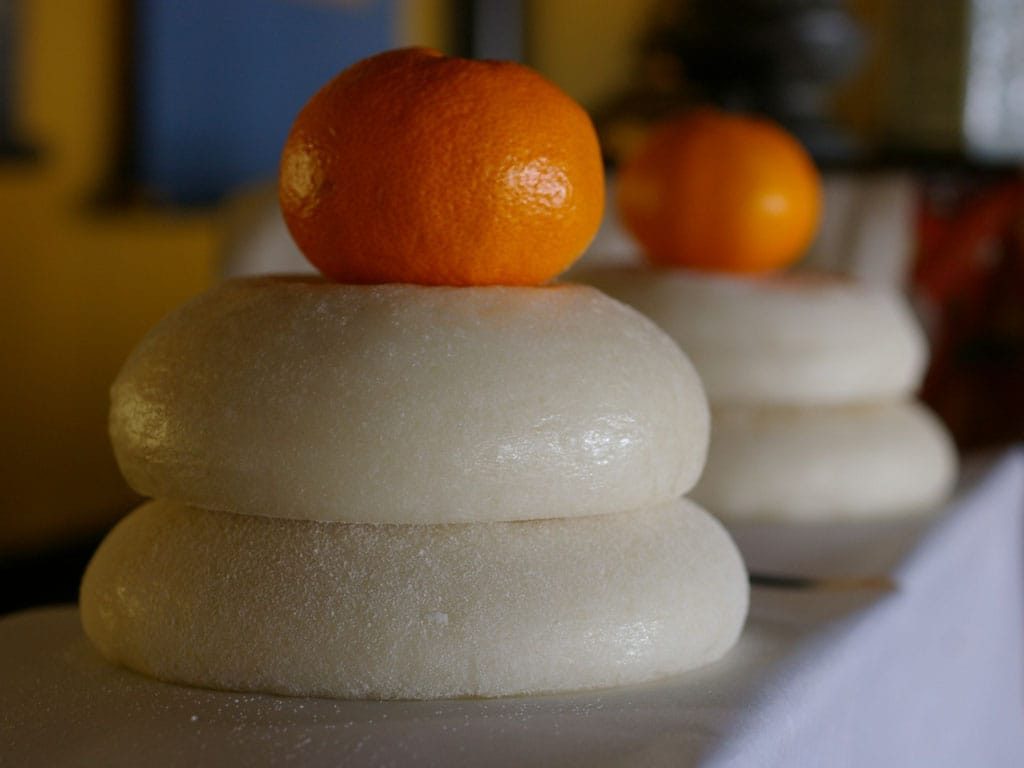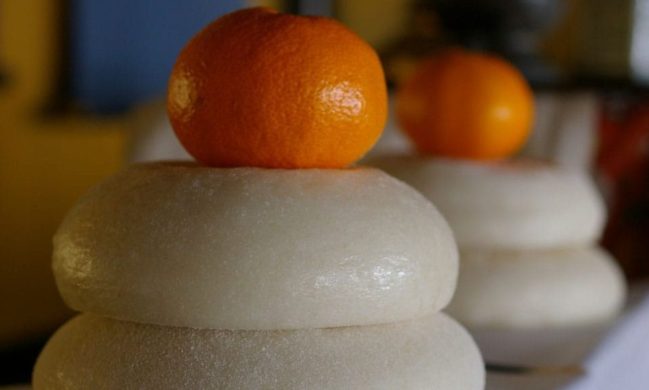What is Kagami Biraki?
Traditional Aikido of Colorado Springs is celebrating 2019 Kagami Baraki on January 13th. Kagami Baraki is a traditional Japanese ceremony that is celebrated to mark a special occasion. Many Aikido dojos celebrate Kagami Baraki to signify the first practice (Keiko) of the new year. The literal translation of “Kagami Biraki” is “mirror opening”. Kigami Biraki originated in China as an agricultural festival credited with creating a proper environment for growing productive crops. The tradition migrated to Japan and eventually evolved into a Shinto celebration of the New Year. In 1884, Jigoro Kano, founder of modern Judo, introduced the annual custom at the Kodokan. Many traditional Japanese dojos celebrate Kagami Biraki as an annual re-dedication, or renewal, of personal commitment to training.

On the 1st of January, two large rice cakes, called Kagami Mochi, are prepared and placed in a stack, on the Kamiza, located at the front of the dojo. The Kagami Mochi are made of rice dough, or “mochi”, and are formed into the shape of antique metal mirrors. The cakes are left on the Kamiza until Kagami Biraki. The mochi cakes dry out, becoming brittle and cracked. During the Kagami Biraki celebration, the mochi cakes are broken apart, representing the “opening of the mirror” and traditionally the pieces of mochi are eaten, usually accompanied with a red bean soup.
While Kagami Biraki has origins in Shinto mysticism, the modern celebration has no religious significance whatsoever. The focus is upon re-dedication of spirit toward training goals. Kagami Biraki represents a time to clean the dojo and re-focus on training.
Our Kagami Biraki Celebration…
This year, our Kagami Biraki celebration will begin at 10 AM on January 13th with a period of seated meditation, after which we will break the Kagami Mochi and open a bottle of sake. We’ll train until 12:30PM. Following training, we’ll move the celebration to Tap Traders. Training will include an introduction to Tanren-uchi and will focus on Iwama style weapons and Aikido fundamentals (Kihon Waza). Visitors and beginning students are welcome to join us!


